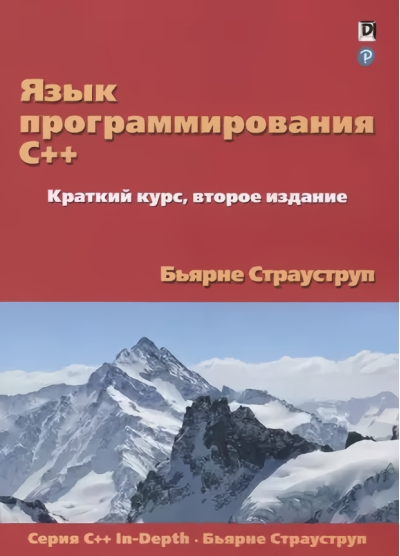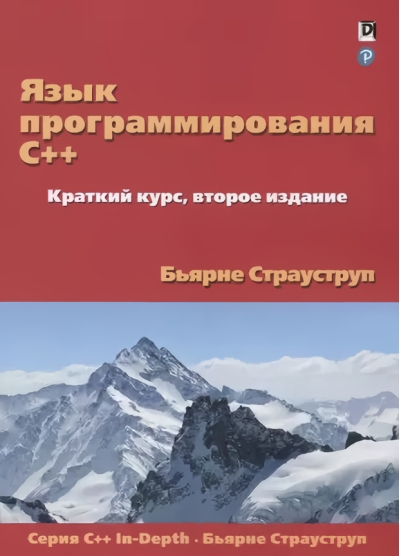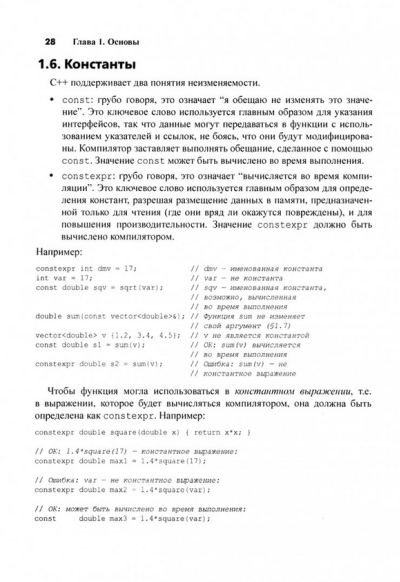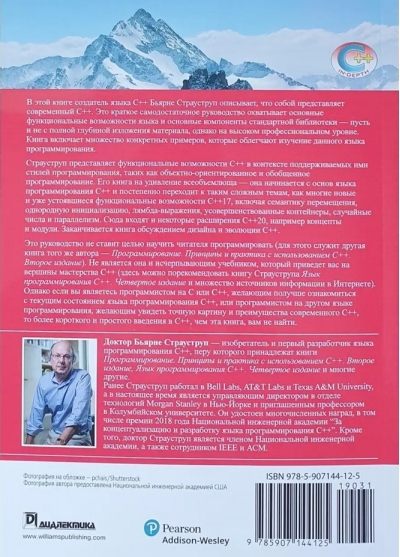The C++ Programming Language: A Brief Course
29.99 €
The only thing available 1
In this book, C++ language creator Bjarne Straustrup describes what modern C++ is all about. This concise, self-contained guide covers the basic functionality of the language and the main components of the standard library - albeit not in full depth, but at a high professional level. The book includes many concrete examples that make it easy to learn this programming language.
Straustrup presents C++ functionalities in the context of the programming styles they support, such as object-oriented and generalized programming. His book is surprisingly comprehensive - it starts with the basics of the C++ programming language and gradually moves on to complex topics such as the many new and established C++17 functionalities, including move semantics, uniform initialization, lambda expressions, advanced containers, random numbers, and concurrency. This includes some C++20 extensions, such as concepts and modules. The book concludes with a discussion of the design and evolution of C++. This guide is not intended to teach the reader how to program (another book by the same author, Programming. Principles and Practice Using C++. Second Edition). Nor is it an exhaustive textbook that will take you to the heights of C++ mastery (here we can recommend Straustrup's book C++ Programming Language. Fourth Edition and many sources of information on the Internet). However, if you are a C or C++ programmer who wants to become more familiar with the current state of the C++ programming language, or a programmer in another programming language who wants to see the exact picture and advantages of modern C++, you will not find a shorter and simpler introduction to C++ than this book.
Straustrup presents C++ functionalities in the context of the programming styles they support, such as object-oriented and generalized programming. His book is surprisingly comprehensive - it starts with the basics of the C++ programming language and gradually moves on to complex topics such as the many new and established C++17 functionalities, including move semantics, uniform initialization, lambda expressions, advanced containers, random numbers, and concurrency. This includes some C++20 extensions, such as concepts and modules. The book concludes with a discussion of the design and evolution of C++. This guide is not intended to teach the reader how to program (another book by the same author, Programming. Principles and Practice Using C++. Second Edition). Nor is it an exhaustive textbook that will take you to the heights of C++ mastery (here we can recommend Straustrup's book C++ Programming Language. Fourth Edition and many sources of information on the Internet). However, if you are a C or C++ programmer who wants to become more familiar with the current state of the C++ programming language, or a programmer in another programming language who wants to see the exact picture and advantages of modern C++, you will not find a shorter and simpler introduction to C++ than this book.
See also:
- All books by the publisher
- All books by the author























